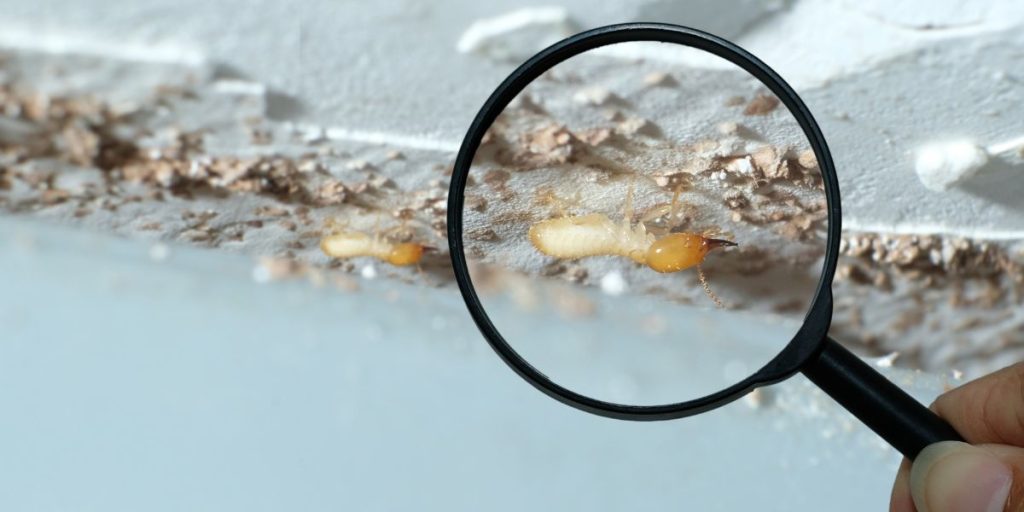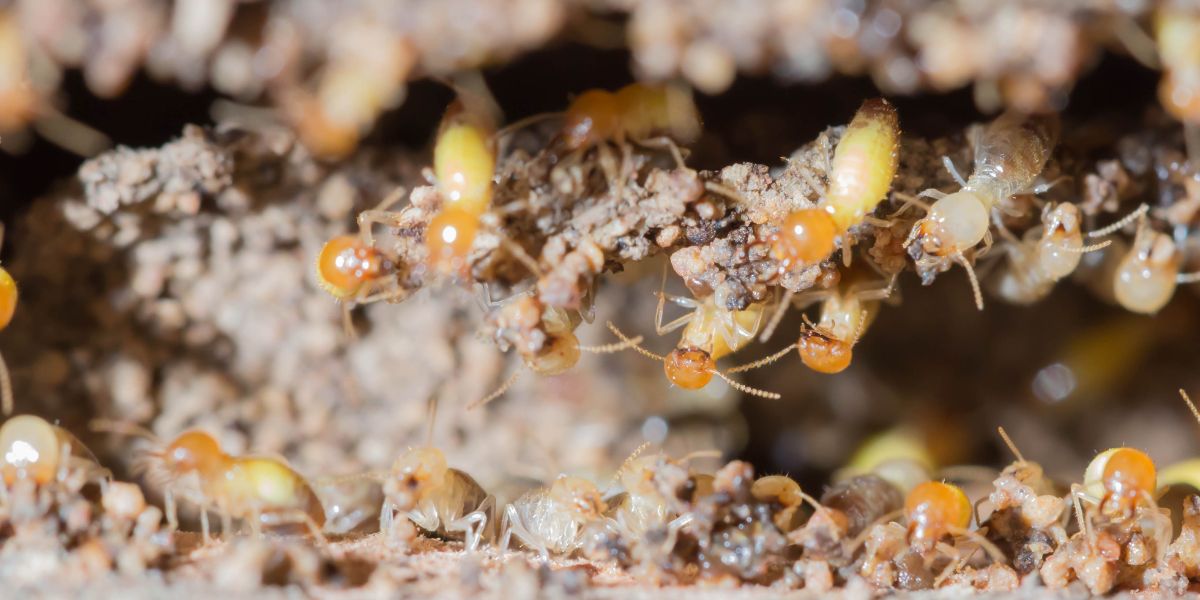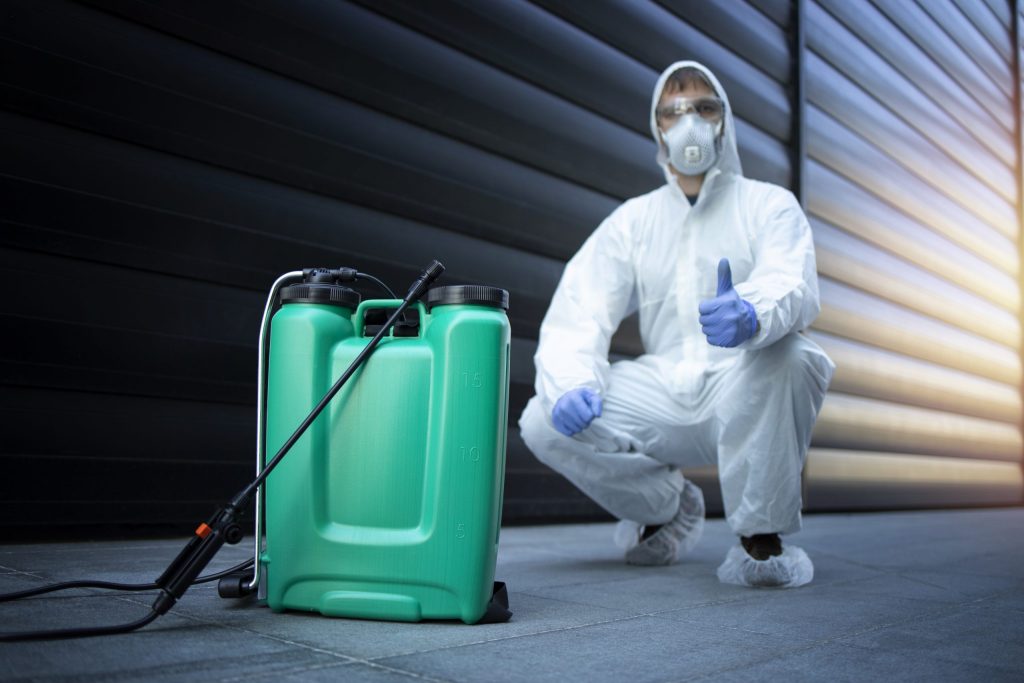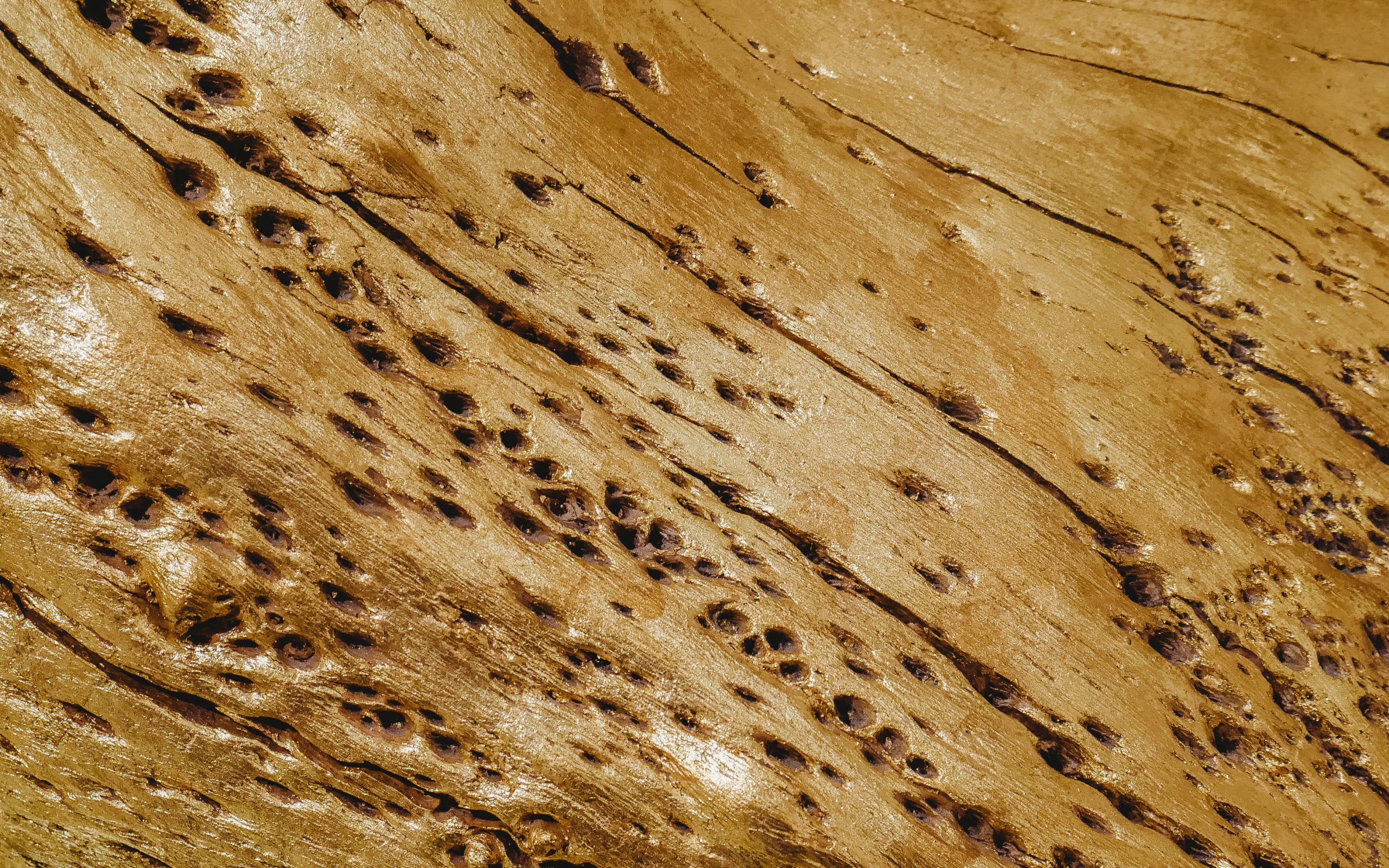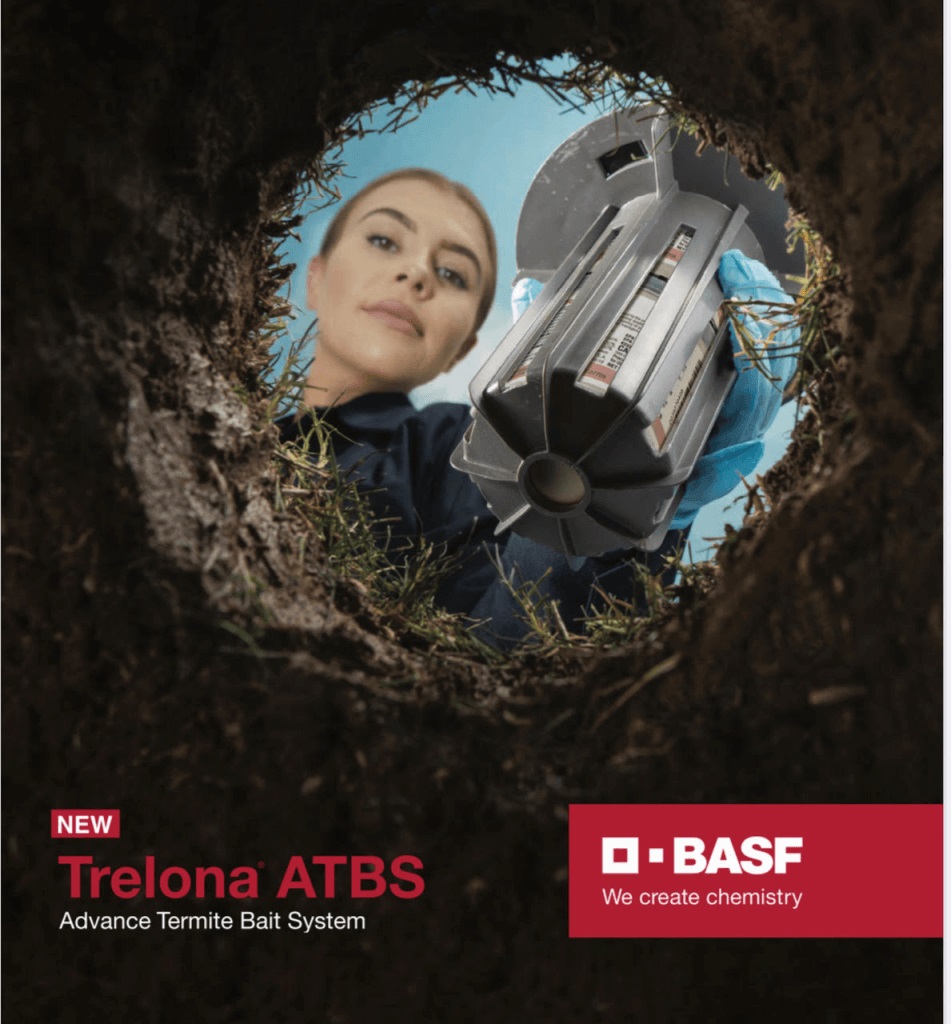Termites may be tiny, but they can cause a massive headache for homeowners. These little critters feed on wood and other materials used in construction. Over time, they can cause serious property damage. But what exactly is the impact of termites on home and property value? Let’s take a closer look.
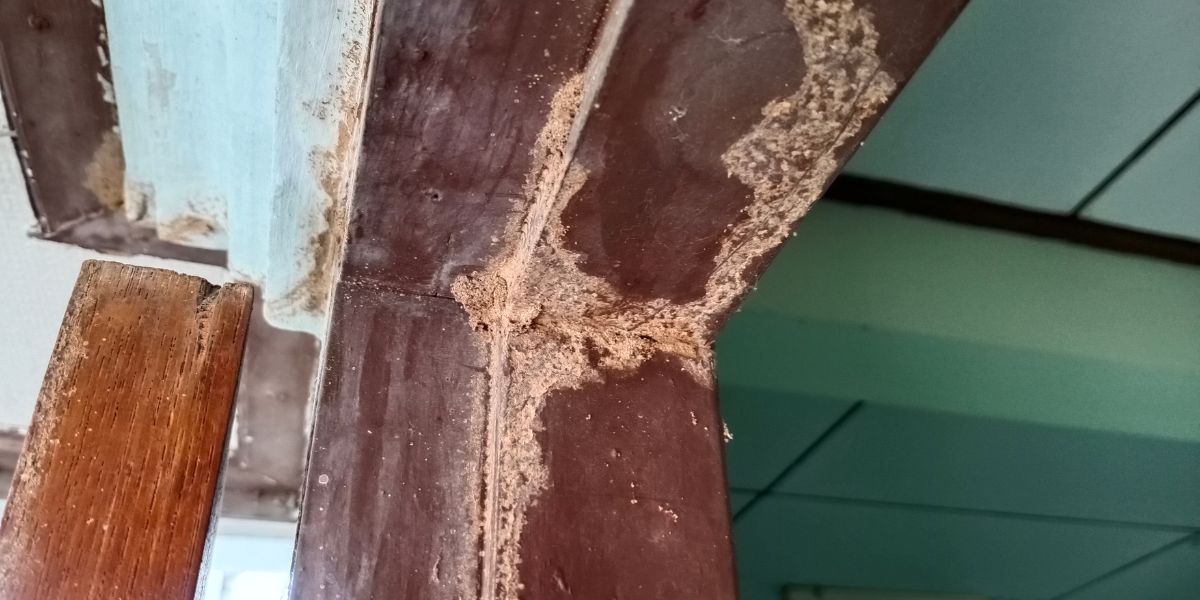
Facts About Termites
Here are some facts about termites that every homeowner in Sydney should know:
Termites are everywhere
Termites are found all over Sydney and are particularly common in areas with high humidity and moisture. This means that even if you haven’t had a termite infestation before, it’s essential to take preventative measures to protect your property.
Moreover, they are sometimes called “white ants,” but they are unrelated to ants. In fact, they are more closely related to cockroaches. Termites are found on every continent except for Antarctica. There are over 300 species of termites in Sydney, and they come in various shapes and sizes.
Termites can be difficult to detect
Termites are small and often hidden away in walls and other hard-to-reach areas. It can be challenging to detect an infestation until it’s already causing significant damage. Regular inspections by a qualified pest control professional can help to identify potential problems before they get out of hand.
In addition, a termite colony can consist of thousands or even millions of individual termites. The colony is usually led by a queen whose sole purpose is to lay eggs and ensure the colony’s survival.
Termites can cause serious damage
Termites can weaken the structure of a building over time, and in some cases, they can even cause it to collapse. This can lead to expensive repairs and potentially dangerous situations for homeowners and their families.
Additionally, termites are attracted to moisture. This is because they need water to survive. Leaky pipes, damp basements, and other areas of your home with high humidity attract termites.
Termite infestations can be costly
Dealing with a termite infestation can be expensive, particularly if it has been allowed to go unchecked for a long time. This can include the cost of repairs, as well as the cost of treatments and preventative measures to ensure that the infestation doesn’t return.
Prevention is key
Preventing a termite infestation is much easier and less expensive than dealing with one. This can involve regular inspections, sealing up cracks and other entry points, and treating the soil around the property to deter termites from approaching.
DIY termite treatments are not effective
Many DIY termite treatments are available, but most are ineffective at eliminating an infestation. In fact, some may make the problem worse by driving the termites deeper into the structure of the building.
Professional pest control is necessary
If you suspect a termite infestation, it’s important to immediately call in a qualified termite pest control professional. They have the knowledge, tools, and expertise necessary to identify and eliminate the problem, and they can also provide advice on how to prevent future infestations.
Termite damage may not be covered by insurance
Most insurance policies do not cover termite damage, which means that homeowners are responsible for the cost of repairs and treatments. This underscores the importance of taking preventative measures to protect your property.
Termite activity can vary throughout the year
Termite activity can be affected by various factors, including temperature, humidity, and the availability of food sources. This means it’s important to remain vigilant throughout the year and take preventative measures even during the cooler months when termite activity may be lower.
Should You Buy a House With Evidence of Termites?
Buying a house is a big decision that should not be taken lightly. There are many factors to consider, including the condition of the property. And when it comes to evidence of termites, it’s important to weigh the risks and benefits carefully.
In Sydney, termites are a common problem. Many homes have evidence of past or current infestations. So, should you buy a house with evidence of termites? The answer is it depends.
First off, it’s important to understand that evidence of termites does not necessarily mean that the property is in poor condition. In fact, many homes with evidence of termites have been treated and are perfectly sound. However, having the property inspected by a qualified pest inspector before making any decisions is essential.
What Termite Control Experts Can Do?
The inspector can determine the extent of the damage, if any, and recommend a course of action. Depending on the severity of the infestation, the inspector may recommend treating the affected areas, replacing damaged wood, or taking other measures to prevent future infestations.
If the inspector finds that the damage is minimal and can be easily repaired, buying a house with evidence of termites may not be a bad idea. As we mentioned, termites are a common problem in Sydney, and many properties have a history of infestations.
However, reconsidering may be wise if the damage is extensive and costly. As we mentioned, termites can weaken the structure of a building, and in some cases, they can even cause it to collapse. This can be dangerous and expensive to repair, significantly impacting the property’s value.
Another factor to consider is the cost of treating and preventing future infestations. Depending on the severity of the infestation, treating and preventing termites can be costly and time-consuming. It’s important to factor these costs into your decision when considering whether to buy a house with evidence of termites.
Ultimately, buying a house with evidence of termites is personal and depends on your circumstances. It’s essential to weigh the risks and benefits carefully and consult a qualified inspector before making any decisions.
If you buy a house with evidence of termites, take steps to prevent future infestations. This can include regular termite inspections, treating the soil around the property, and sealing up cracks and other entry points. These steps can protect your investment and ensure your home’s long-term health and safety.
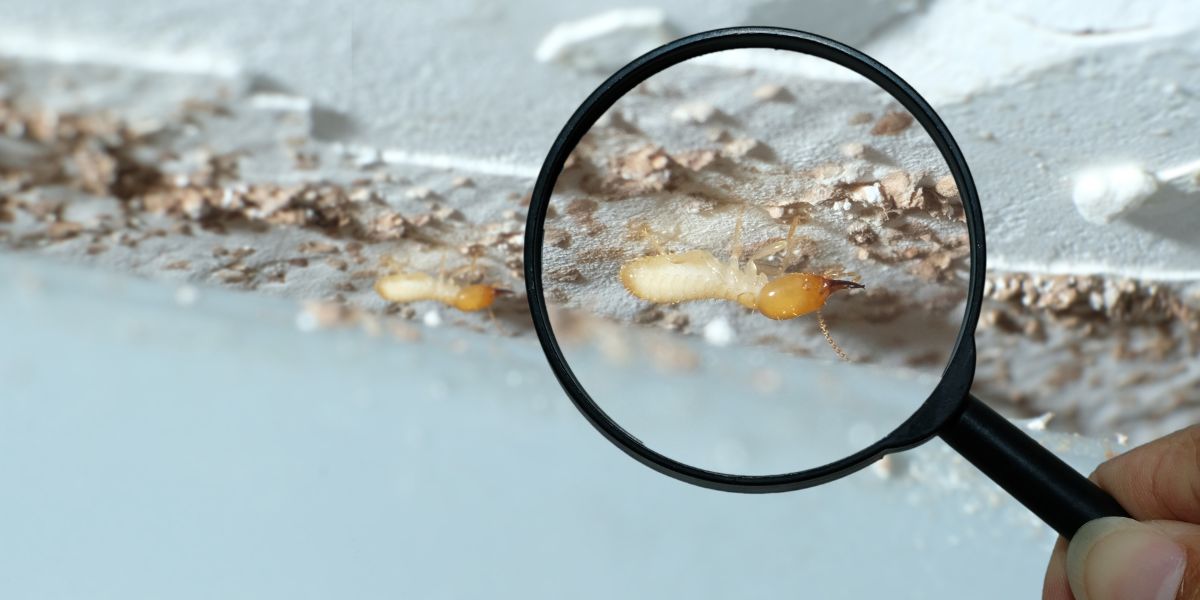
Do Termites Infestation Decrease the Value of Your Home? – The Impact of Termites on Home and Property Value
The short answer is, yes, they can. Termites feed on wood and other materials used in construction, and over time, they can weaken the structure of a building. This can lead to expensive repairs and potentially dangerous situations for homeowners and their families.
But it’s not just the damage caused by termites that can hurt the value of your home. The mere presence of termites can also be a turn-off for potential buyers. Many people are understandably wary of buying a property with a history of termite infestations, and even if the problem has been resolved, the stigma can remain.
How Long Does It Take for Termites to Do Significant Damage to a House?
Contrary to popular belief, termites don’t cause damage overnight. In fact, it can take several months or even years for termites to do significant damage to a house. However, this can vary depending on several factors, including the size of the termite colony and the type of termite.
Subterranean termites, the most common type in Sydney, can cause significant damage to a house in just a few months. They live in underground colonies containing hundreds of thousands of termites, constantly looking for food sources.
Drywood termites, on the other hand, tend to work more slowly and may take several years to cause significant damage. This is because they live in small colonies within the wood they consume, and may not be as aggressive as subterranean termites.
Regardless of the type of termite, it’s important to address any infestations as soon as possible to prevent significant damage from occurring. Regular inspections by a qualified pest inspector can help identify any potential termite problems early on, and treatment can be administered before significant damage occurs.
What Happens if You Ignore Termites?
Ignoring a termite infestation in your home can have serious consequences. Here are some of the things that can happen if you ignore termites:
Structural damage: Termites can cause significant damage to the wooden structures of your home, including beams, walls, and floors. Over time, this damage can weaken the structural integrity of your home, making it unsafe to live in.
Decreased property value: A home with a history of termite infestation will likely have a decreased property value. Potential buyers may be hesitant to invest in a property with a history of termite damage, and the cost of repairs can be substantial.
Expensive repairs: The longer you wait to address a termite infestation, the more extensive and expensive the repairs will be. In some cases, replacing entire sections of the house may even be necessary, which can cost tens of thousands of dollars.
Pest control expenses: Ignoring a termite infestation can also increase pest control expenses. The longer the infestation goes untreated, the larger the colony will become and the more difficult it will be to eradicate.
Who Pays for Termite Damage When Buying a Home?
In most cases, the seller is responsible for paying for termite damage when buying a home.
This is because sellers typically must disclose any known termite damage or infestations to potential buyers. If the seller fails to disclose this information, they could be liable for any repairs or damages that occur as a result.
However, it’s important to note that the specific terms of the sale can vary depending on the contract between the buyer and seller. In some cases, the buyer may agree to take on responsibility for any termite damage discovered after the sale.
If you’re unsure who pays for termite damage when buying a home, it’s best to consult with a real estate attorney or agent. They can help you understand the terms of your contract and your legal rights and responsibilities.
How to Identify Hidden Termite Infestation?
Here are some tips on how to identify a hidden termite infestation:
Look for mud tubes: Termites often build mud tubes to travel between their nests and food sources. These tubes can be found along your home’s foundation or on the walls and can be a clear sign of a termite infestation.
Check for soft or hollow-sounding wood: Termites feed on wood from the inside out, which means that the wood may appear normal on the outside, but be hollow or soft on the inside.
Look for discarded wings: Termites often shed their wings after they’ve found a new place to build a colony. These wings can be found near windows, doors, and other entry points to your home.
Inspect dark or damp areas: Termites are attracted to dark and damp environments, so it’s important to inspect areas of your home that are prone to moisture, such as crawl spaces, attics, and basements.
Tap on wood surfaces: Tap on wooden surfaces in your home with a screwdriver or other hard object. If the wood sounds hollow or is easily punctured, it may be a sign of termite damage.
Get a professional inspection: If you suspect you have a hidden termite infestation, it’s best to call a professional pest control company to thoroughly inspect your home. ABC Pest Control is a reputable pest control company that uses safe and effective methods to eliminate termites from your home. They have highly trained technicians who can identify and treat termite infestations and other pest inside your house such as rats and bed bugs. and offer warranties on their services for your peace of mind. Book now and get the best package deals. You can also visit their Google Business Profile to read reviews from satisfied customers.
Can You Renegotiate the Price After the Termite Inspection?
The answer is both yes and no. In some cases, sellers may be willing to lower the price of the home to account for any necessary repairs or treatments for the termite infestation. This may be especially true if the seller is eager to sell the home quickly.
However, in other cases, the seller may refuse to renegotiate the price of the home, especially if the market is competitive and other potential buyers are interested in the property.
It’s important to remember that the specific terms of the sale can vary depending on the contract between the buyer and seller. If your contract has a contingency clause that allows for renegotiation based on the inspection results, you may have more leverage to negotiate a lower price.
Ultimately, whether or not you can renegotiate the price of the home after a termite inspection depends on the specific circumstances of the sale. It’s important to consult with your real estate agent and/or a real estate attorney to understand your options and negotiate the best deal for your situation.

